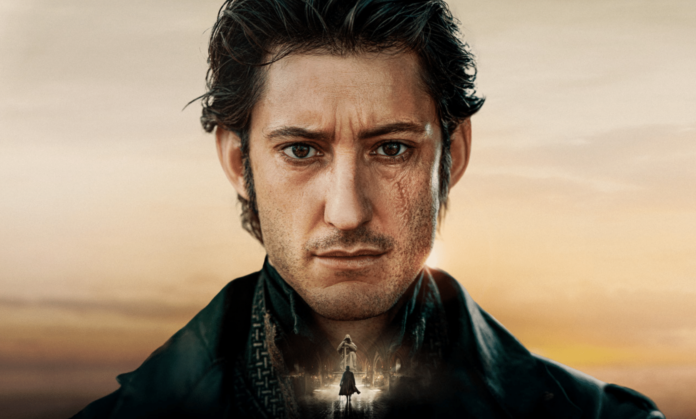When I was 14 years old, I endeavoured to read Alexandre Dumas’ The Count of Monte Cristo. I had just watched the 2002 movie adaptation of the novel, and was obsessed with the tale of Edmond Dantès. Any Lit major worth their salt will know that this is a massive undertaking, since the book is more than a thousand pages long. I borrowed the book from my school library, the hardcover copy mind you, and spent the next month or so making my way through it. Dantès’ tale of revenge is basically imprinted onto me, so to get an adaptation in 2024, and such a stellar looking one at that, feels like a dream come true.
Edmond Dantès (Pierre Niney) is on top of the world. He’s just been made captain, which means he now gets to marry the love of his life Mercédès Herrera (Anaïs Demoustier). Everything’s perfect and rosy-hued, until his wedding day gets interrupted by Gérard de Villefort (Laurent Lafitte), who brings charges of treason upon him. This claim is supported by his lifelong best friend Fernand de Morcef (Bastien Bouillon), and bolstered by the testimony of former ship captain Danglars (Patrick Mille). Edmond is thrown in the Château d’If, doomed to spend the rest of his life imprisoned for a crime he did not commit.
The camerawork and cinematography are fantastic and truly capture the grandiose nature of this tale. The rich colours and expansive estates reflect the opulence of the wealthy, while the dark candle-lit interiors take us into Edmond’s mind and the dark despair that keeps his wounds fresh. Niney is the perfect Edmond Dantès, able to fully realise all sides of the character. He is all charm and innocence as a younger Edmond, and a hardened viper as the Count of Monte Cristo, intent on taking revenge on the 3 men who took everything from him because of their greed and jealously. He also wears many other faces in the course of the film, and performs all these roles flawlessly. I love the conceit of the masks: Edmond must wear numerous faces in order to carry out his revenge, but it also speaks to the masks men like Fernand wear – offering friendship and goodwill to your face before taking their mask down to stab you in the back.
Even with a runtime close to 3 hours, I still expected some narrative points to be chopped off or streamlined. It is no easy feat to adapt a complex novel like The Count of Monte Cristo, and sacrifices would have to be made with some of the plotlines and characters, What is disappointing is that Edmond’s time in the Château d’If is so brief. Because of that, the relationship between Edmond and fellow prisoner Abbé Faria (Pierfrancesco Favino) never feels fully realised, which is a shame because their friendship is so instrumental to Edmond’s journey in the novel.
In a movie about a man making plans to twist the knife into his enemies, which is deliciously fun to watch unfold, what entranced me more is the relationship between Edmond and Mercédès. Niney conveys Edmond’s silent fury with Mercédès for not waiting for him, yet he follows her around eagerly like a moth to a flame, caught between wanting her to pay while pining desperately for her. There isn’t much space in the film devoted to Mercédès, but Demoustier does excellent work in making us feel her lament and the loneliness that drove her to make the decisions she does. It is deeply moving to see two characters who once loved each other having to now face the chasm of time and circumstance. Directors Alexandre de La Patellière and Matthieu Delaporte have retained the brimstone and tragedy inherent to Dumas’ tale, yet there’s an undeniable sense of humanity here that makes this the best adaptation of The Count Monte Cristo to date.
Dumas’ novel makes it clear that Edmond cared more about his revenge than he did Mercédès, and this is the perennial question that drives each adaptation. I will leave you to discover on your own 2024’s response to that question.
Review screener provided.
REVIEW SCORE: 4.5/5

